3 Misconceptions About the Trinity: #1 – Is It in the Bible?
Written by Con Campbell, Australia
Con Campbell is Senior Vice President of Global Content and Bible Teaching at Our Daily Bread Ministries. He’s an Australian New Testament scholar, author, speaker, and documentary presenter. Con enjoys playing jazz saxophone, lifting weights, and playing chess . . . though not normally at the same time.
Has anyone ever asked you why Christians believe in the Trinity? If so, what did you say? If not, what would you say? I’ve been asked that question, and let me tell you it is easy to feel stupid quickly. A knowledgeable skeptic may know that the Bible does not ever use the word “Trinity.” They may also wonder how an ordinarily intelligent person could believe in ONE God, who is also THREE persons. They may think the Trinity is a quaint, weird belief that Christians have held for a long time, but no one really knows why.
But let’s face it, knowledgeable skeptics aren’t the only ones who might wonder about such questions. Lots of Christians wonder the exact same things. As a result, the Trinity is one of the least well-understood Christian beliefs. And yet it is also one of the most important. In this three-part series, I will address three common misconceptions about the Trinity and, I hope, show why belief in the Trinity is absolutely essential for every Christian.
Misconception #1: The Bible Doesn’t Teach About the Trinity
Let’s start at the most obvious place. Nowhere does the Bible use the word “Trinity.” It is a term that was invented by the church centuries after the Bible was written. But that doesn’t mean the Trinity is not taught by the Bible. The concept is present even though the word we use for the concept is not. It’s a bit like the film, The Godfather. The movie is obviously about the New York mafia, even though the word mafia never occurs in the film. The concept is there; the word isn’t.
The concept of the Trinity evolves through the Bible, beginning with the Old Testament affirmation that there is only one God, Yahweh (Deuteronomy 6:4). The monotheism of the Bible is strongly established from the beginning. But we begin to see that there is more to the picture once Jesus comes on the scene (and arguably even before that; see Gen 1:26). People recognize Jesus’s divine origin (John 20:28), and Jesus Himself affirms that He and the Father are one (John 10:30). John says that in the beginning Jesus was with God and Jesus was God (John 1:1). If He was with God but also was God, then we see that something very unusual is in view. It seems that the “one God” of the Old Testament is more complex than was previously known.
And here’s where many of us might stumble too. Jesus makes claims about His divine origin and identification with the Father that cause religious leaders to charge Him with blasphemy—because they knew He was claiming to be God (Mark 2:7; John 8:58–59). He has the power to forgive sins (Mark 2:10), power over nature (Mark 4:41), power over the spiritual realm (Mark 5:1–17)—power that only God has—and He reveals God to His followers. When Thomas asked Jesus to show them the Father, Jesus responded that to see Him is to see the Father (John 14:8–11). Jesus also receives worship (Matt 14:33)—something that should only be offered to God. The deity of Jesus is clearly taught in the New Testament (Titus 2:13; 2 Pet 1:1), and yet this is not seen as a contradiction to the monotheism of the Bible.
Okay, you might be thinking, but Trinity means three. Why do we include the Holy Spirit as a person within the Godhead? When Jesus prepares His disciples for His departure He reassures them that He will send them the Counselor—the Spirit (John 14:16–17). Not only will the Spirit continue to teach His disciples (John 14:25–26), but He will enable Jesus to remain with them even though He will be physically absent (Romans 8:9–11). In other words, the Spirit mediates the presence of Jesus to His people. Just as Jesus reveals the Father to us, so the Spirit brings us into Jesus’s presence. Other hints of the Spirit’s deity include language of blaspheming the Spirit (as though He is God Himself; Matthew 12:31). While the deity of the Spirit is not as developed as Jesus’s deity in the New Testament, it is clear that Jesus regarded Him as “God” and so did Jesus’s first followers.
In several parts of the New Testament we see the Trinity operating clearly, as Father, Son, and Spirit work together to achieve the same ends. An example is 1 Peter 1:2, where believers are chosen by God the Father, set apart by the Spirit, to be obedient to Jesus Christ. Some of Paul’s prayers and doxologies refer to Father, Son, and Spirit as equal partners (e.g., Romans 1:1–4; Ephesians 1:3–14).
Putting it together, the Bible clearly affirms that God is One, but also that God consists of three persons—Father, Son, and Spirit. All three may be called God, but all three are distinct. They are not three gods (polytheism), but are God in relation. In fact, God is intrinsically relational—at His very core is a set of loving, eternal relationships between Father, Son, and Spirit.
Not only is the triunity of God affirmed in the Bible, but it teaches us that God is a relational being. Since we are made in His image, we, too, are relational in nature and seek the kind of intimate, harmonious relationships that God has within Himself. Understanding who God is can help us understand ourselves and our deepest longings. This is key to the next misconception we’ll be addressing, so stay tuned!

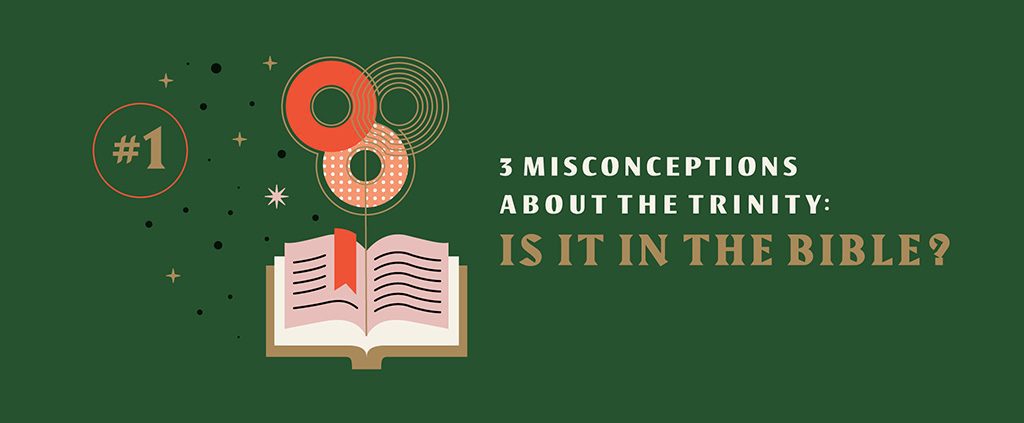
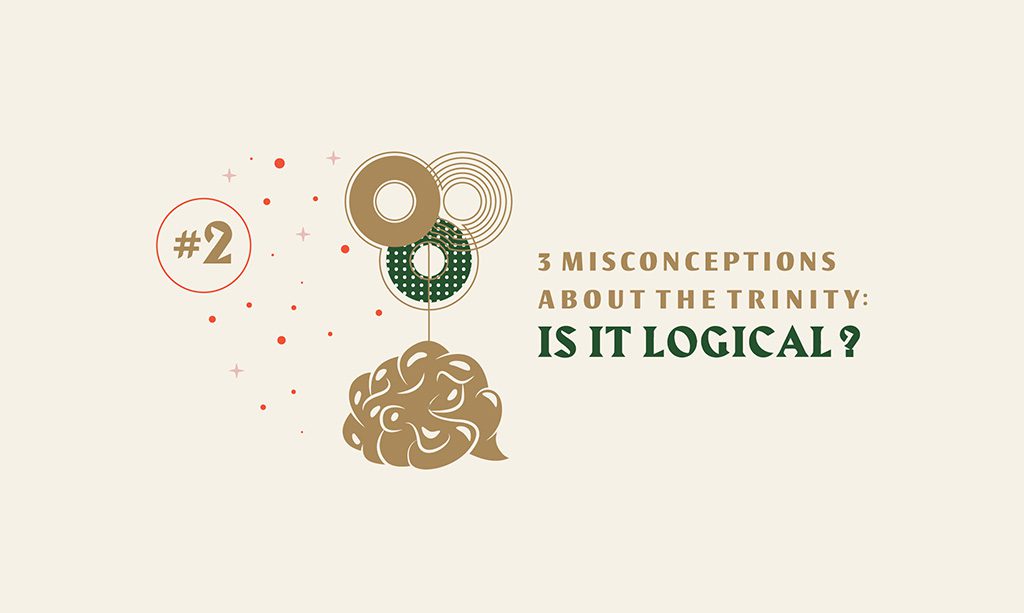
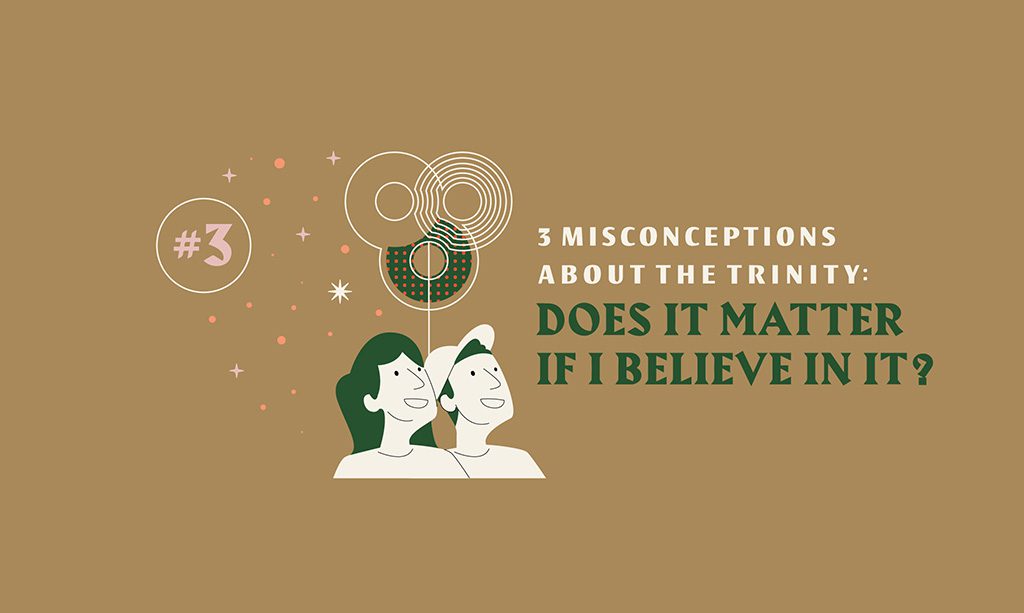



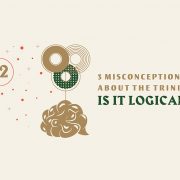
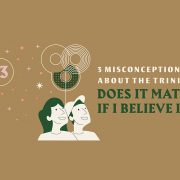



Leave a Reply
Want to join the discussion?Feel free to contribute!